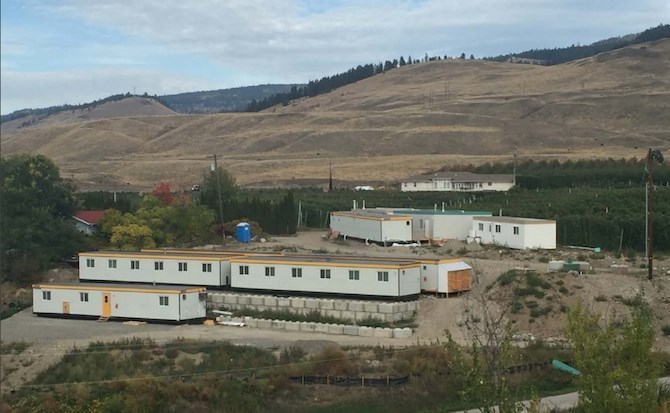No shortage of seasonal foreign agriculture workers expected in B.C. this year

It appears there won’t be a shortage of agricultural workers on Okanagan farms and orchards this season following the first full year of biometric requirements for all foreign workers, and a drop in the number of young people travelling from Quebec and Ontario to pick.
As of Dec. 31, 2018, all foreign workers were required to provide biometric information including fingerprints and digital photographs in order to enter Canada.
“It was a concern last year,” says B.C. Fruit Growers Association president Bhupinder Dhaliwal, noting a shortage in processing facilities resulted in a slowing of applications.
“Workers coming in from Mexico had limited machines and staff to process their biometrics, but even with those limitations, half the applicants were done,” he says.
B.C. gets its foreign workers from two regions, Mexico and 13 Caribbean countries. Dhaliwal says Jamaica had its biometrics program running a few years ago and had no backlogs.
“Overall, the process has gone smoothly. There’s been lots of coordination between governments and other organizations involved,” he says. A foreign worker’s biometrics information is good for 10 years.
Foreign workers enter Canada through participation in the Seasonal Agricultural Workers Program, which allows employers to hire temporary foreign workers when Canadian and permanent residents aren’t available.
B.C. gets around 7,500 seasonal agricultural workers — 6,100 from Mexico and 1,400 from the Caribbean region — with half going to Lower Mainland and half to the Okanagan and Similkameen. Foreign workers will start arriving on Okanagan farms in March.
Local producers still rely on farm labour from eastern Canada as well, but times are changing. Traditionally about 4,000 workers from Quebec and Ontario travel to B.C. to work in orchards and on farms.
“It used to be a rite of passage, their parents came, they came, but there is less inclination for them to come out now,” Dhaliwal says. “There are more jobs out east, it’s more difficult to get here, more expensive. There’s a shortage of labour everywhere, so more are finding work at home. I think numbers will continue dropping.”
“We want to employ Canadians first, but a majority of Canadians don’t want to work on farms. They would rather be in an air conditioned building, and they don’t want to be away from their internet connection. It used to be different in that youth worked on a farm for the summer.”
To contact a reporter for this story, email Steve Arstad or call 250-488-3065 or email the editor. You can also submit photos, videos or news tips to tips@infonews.ca and be entered to win a monthly prize draw.
We welcome your comments and opinions on our stories but play nice. We won't censor or delete comments unless they contain off-topic statements or links, unnecessary vulgarity, false facts, spam or obviously fake profiles. If you have any concerns about what you see in comments, email the editor in the link above.


